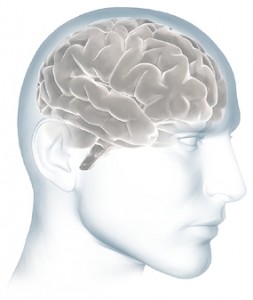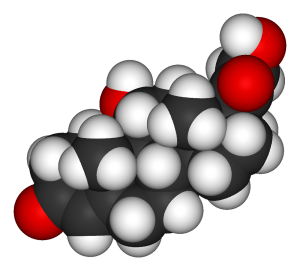Giving Serious Thought to Brain Health – Prevent Alzheimer’s Disease Today
By Kaylene Peoples | October 8th, 2012 | Category: Fitness Couture, Health | Comments Off on Giving Serious Thought to Brain Health – Prevent Alzheimer’s Disease Today Brain health should be the first on our list if we want to stay alert, lucid, and age gracefully with our memories intact. According to the U.S. Center for Disease Control and Prevention, more than 5 million Americans have Alzheimer’s disease, and that number could jump to 116 million by 2050. On some level, this disease has affected everyone at least once in his or her life. My childhood friend’s mother is suffering from the illness and I hear of stories how her mother doesn’t even recognize her anymore. Maybe you have an elderly parent suffering from the disease, or have lost relatives, too.
Brain health should be the first on our list if we want to stay alert, lucid, and age gracefully with our memories intact. According to the U.S. Center for Disease Control and Prevention, more than 5 million Americans have Alzheimer’s disease, and that number could jump to 116 million by 2050. On some level, this disease has affected everyone at least once in his or her life. My childhood friend’s mother is suffering from the illness and I hear of stories how her mother doesn’t even recognize her anymore. Maybe you have an elderly parent suffering from the disease, or have lost relatives, too.
Did you know that every 70 seconds, someone is diagnosed with Alzheimer’s disease? By slowing the progression of Alzheimer’s disease by just five years, we can reduce the number of cases by up to 50 percent. And if the onset of Alzheimer’s can be delayed by 10 years, scientists tell us that the disease would essentially be eradicated.
 So what is Alzheimer’s disease exactly? Some people refer to it as “old timers” disease, too. Even though it has a light-hearted tone, there is nothing funny about the mid to advanced stages of this disease. Alzheimer’s disease is a progressive, neurodegenerative disease characterized by a loss of memory and cognition, a decline in ability to perform activities of daily living, and changes in personality and behavior. The increasing severity of symptoms over time ultimately leaves the patient completely dependent on others for care. Of Americans aged 65 and over, 1 in 8 has Alzheimer’s disease and nearly half of people aged 85 and older have the disease. The incidence of Alzheimer’s disease is about the same for all races, but women are more likely than men to develop the disease, in part because they live longer.
So what is Alzheimer’s disease exactly? Some people refer to it as “old timers” disease, too. Even though it has a light-hearted tone, there is nothing funny about the mid to advanced stages of this disease. Alzheimer’s disease is a progressive, neurodegenerative disease characterized by a loss of memory and cognition, a decline in ability to perform activities of daily living, and changes in personality and behavior. The increasing severity of symptoms over time ultimately leaves the patient completely dependent on others for care. Of Americans aged 65 and over, 1 in 8 has Alzheimer’s disease and nearly half of people aged 85 and older have the disease. The incidence of Alzheimer’s disease is about the same for all races, but women are more likely than men to develop the disease, in part because they live longer.
Have I gotten your attention yet? So maybe you’re not at risk immediately, but as we age, we are prone to all sorts of ailments. Just ask your physician if you don’t want to take my word for it. Don’t become a victim of a disease that could have been prevented or held off by proper diet, exercise, and mental stimulation. Below are some tips to help increase your brain health. If you are already doing these things, don’t stop. If you aren’t following some of these tips, you might want to consider changing your habits and adopting these ideas to further take care of that brain of yours.
The Alzheimer’s Prevention Diet:
Avoid Trans-fat and saturated fat.
Fats found in red meat can cause inflammation as well as produce free radicals. Free radicals are normal, but in high quantities can cause irreparable damage to your brain cells. So, what are the good fats? Check out this breakdown and proceed accordingly:
- 20% “good” fats include extra virgin olive oil, avocado, and flaxseed oil.
- 40% lean proteins include fish, chicken, turkey, and soy daily.
- 40% complex carbohydrates include fresh veggies, whole grain, legumes, and fresh fruit.
- Enjoy the “super foods” like blueberries, spinach, and seaweed! These have fabulous antioxidants, helping to prevent Alzheimer’s.
Vitamins and memory specific nutrients are key factors
High potency multivitamins and mineral capsules, which should contain folic acid and vitamin C. Folic acid helps to reduce your risk for both heart disease and memory loss. Vitamin C taken with vitamin E can help reduce your risk of Alzheimer’s disease by 20%. You should take a dose of 2,000 mg of vitamin C a day.
These are memory specific nutrients and should be included in your daily vitamin plan.
- coenzyme Q10
- alpha lipoic acid
- ginkgo biloba
- phosphatidylserine
- DHA (an omega-3 oil)
- acetyl-L-carnitine
 If you have moderate to severe memory loss, you should include the following:
If you have moderate to severe memory loss, you should include the following:
- huperzin-A
- vinpocetine.
These vitamins taken with a well- balanced nutritional diet will support your memory and improve memory loss.
Avoid stress.
When you are stressed, chemicals such as adrenaline and cortisol flood your body. These chemicals cause your heart to beat faster, and also cause that “stimulated” feeling you experience under stressful conditions. Cortisol, in excess, damages the cells in the memory center of your brain, stops glucose from entering your brain cells, and blocks your neurotransmitter function and injures your brain cells.
High levels of cortisol also impact your ability to learn and retain new information (short-term memory loss). As stress and cortisol levels increase, so does your chance of developing memory loss. As you age, you naturally have a decreased ability to handle stress and lower your blood cortisol levels. This can ultimately lead to the death of your brain cells.
You need physical activity.

 Regular physical exercise can reduce your risk for developing Alzheimer’s disease by up to 50%. Recent findings suggest that an overall active lifestyle is the key to brain and body health. Anything that gets your heart pumping and your muscles moving is leading you in the right direction to better overall health. Plus, be sure to remember to include strength training to maintain your muscle mass and prevent osteoporosis and related illnesses.
Regular physical exercise can reduce your risk for developing Alzheimer’s disease by up to 50%. Recent findings suggest that an overall active lifestyle is the key to brain and body health. Anything that gets your heart pumping and your muscles moving is leading you in the right direction to better overall health. Plus, be sure to remember to include strength training to maintain your muscle mass and prevent osteoporosis and related illnesses.
Do brain-building mental exercises.
Spend at least 20 minutes, three times a week doing mental exercises. These could include learning a new language, playing a board game, doing crossword puzzles, or changing up your routine. Mind/body exercise is an effective way to increase the amount of blood flow going to your brain and improve your memory.
—-
If you suspect that you or someone you love has Alzheimer’s disease, consult your physician immediately; but it is never too late to start taking better care of your overall brain health. Why not start today?
Resources:
http://www.alzheimersprevention.org/
http://www.alz.org/alzheimers_disease_what_is_alzheimers.asp
http://en.wikipedia.org/wiki/Alzheimer%27s_disease








